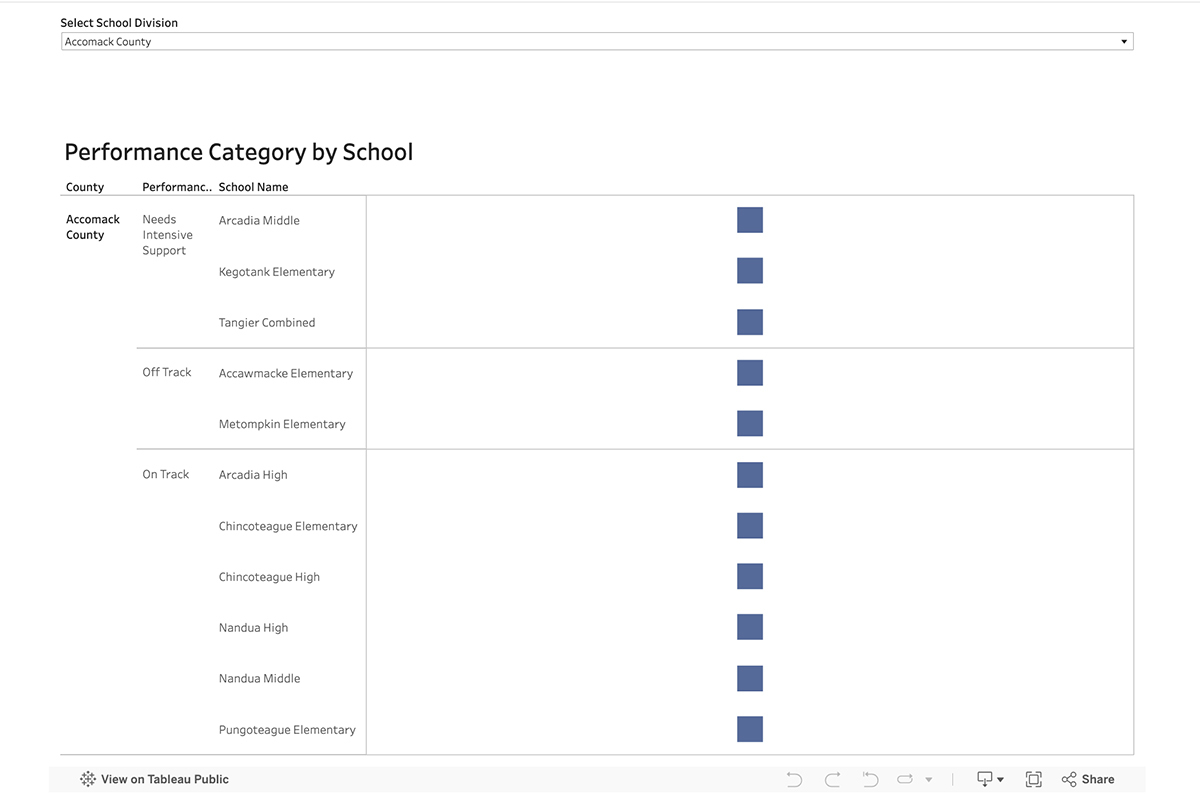Performance Framework Exposed: See the Data and Why It Matters
A Shared Commitment to Fair and Effective Accountability
As educators, parents, and policymakers, we all agree on one thing: school accountability systems should reflect the true quality of our schools. They must be fair, accurate, and focused on supporting improvement – not simply labeling or punishing schools. Unfortunately, Virginia’s new Performance Framework and Support Framework, the accountability system recently approved by the Virginia Board of Education (VBOE), falls short of these critical standards.
Instead of fostering progress and providing actionable insights, this flawed system misleads the public, unfairly stigmatizes schools serving high-need populations, and rushes ahead without addressing foundational problems in its design and implementation.
At the Virginia Education Association (VEA), we know our schools deserve better. While we support accountability and transparency, the Performance Framework, as it stands, will do more harm than good. It’s time to pause, reassess, and rebuild an accountability system that aligns with our shared values of fairness, accuracy, and meaningful improvement.
The Problem: A Misleading and Rushed System
The Performance Framework categorizes schools into four labels – Distinguished, On Track, Off Track, and Needs Intensive Support – based on a series of metrics. While this structure might appear straightforward, its implementation has been fraught with issues:
- Lack of Transparency and Errors: Over the summer and fall, the Virginia Department of Education (VDOE) repeatedly made mistakes in modeling school categories. Even when VDOE released the public dataset, it lacked clear labels for school categories and required complicated calculations for the public to interpret. The system is so complex that even the agency responsible for it has struggled to model it accurately, raising serious questions about its usability and reliability.
- Misleading Methodology: The framework places disproportionate weight on raw standardized test scores, overlooking the progress schools make in helping students succeed. This approach unfairly penalizes schools serving high-need populations and provides an incomplete picture of school quality.
- Rushed Rollout: Significant components of the framework, such as readiness assessments for 5th and 8th graders, are not yet ready. Moreover, the system will require major adjustments in its second year, creating unnecessary confusion for teachers, administrators, and families.
Key Findings from VEA’s Analysis
After extensive analysis of the Performance Framework dataset, the VEA uncovered troubling patterns that highlight the system’s flaws:
- Disparities in Resources: Schools labeled as Distinguished spend over $1,000 more per student on average in state and local funding than schools labeled as Needs Intensive Support. This financial disparity directly affects the opportunities and support available to students, and is upside-down from what all policymakers know is needed.
- Concentration of Students Facing Most Barriers to Education:
- One-third of students in Needs Intensive Support schools are Black—150% higher than their statewide representation.
- Nearly 7 in 10 students in Needs Intensive Support schools are students of color.
- The share of English Learner (EL) students in Needs Intensive Support schools is more than double that of Distinguished schools, yet these schools are held to unrealistic expectations by including EL students’ scores for accountability purposes after just three semesters of enrollment, regardless of students’ proficiency levels.
- Staffing Shortages:
- Teacher vacancy rates in Needs Intensive Support schools are five times higher than in Distinguished schools.
- Nearly 1 in 5 teaching positions in Needs Intensive Support schools are either vacant or filled by provisionally licensed teachers, compared to just 1 in 15 in Distinguished schools.
- Undermining Recognized Schools: More than half of the schools recently celebrated by the VBOE with Continuous Improvement Exemplar Awards would be labeled as Off Track or Needs Intensive Support under the Performance Framework. This sends conflicting messages about what success truly looks like.
Interactive Tool: Find Your School’s Category

Click Here
Performance Framework ratings by school are based on 2023-24 school year data and not official for this year. This data was released in November 2024 by VDOE and the first year of official ratings will come out in September 2025.
Solutions: Let’s Get Accountability Right
Virginia lawmakers have a critical role to play in addressing these issues. Here’s how we can move forward:
- Delay Implementation: Legislation in 2025 should halt the rollout of the Performance Framework, giving policymakers and educators time to address its critical shortcomings.
- Prioritize Growth: Accountability should focus on growth measures that incentivize schools to improve outcomes for all students. For English Learner students, ratings should initially reflect progress in English proficiency rather than standardized test scores in unrelated subjects.
- Ensure Readiness: Before implementation, the framework must be fully modeled, all components finalized, and clear guidance provided to schools. This includes readiness assessments and consistent, transparent performance indicators.
- Provide Resources for High-Need Schools: Address the systemic underfunding of high-need schools by revising the Standards of Quality to provide adequate resources. This will ensure schools labeled as Needs Intensive Support have the tools they need to meet their students’ needs.
Virginia’s families, educators, and students deserve an accountability system that supports growth and improvement – not one that stigmatizes schools without addressing the root causes of their challenges. We urge lawmakers to act swiftly in 2025 to delay this system and lay the groundwork for an approach that works for everyone.
Together, we can build a better future for our schools – one rooted in fairness, transparency, and a commitment to helping every student thrive.